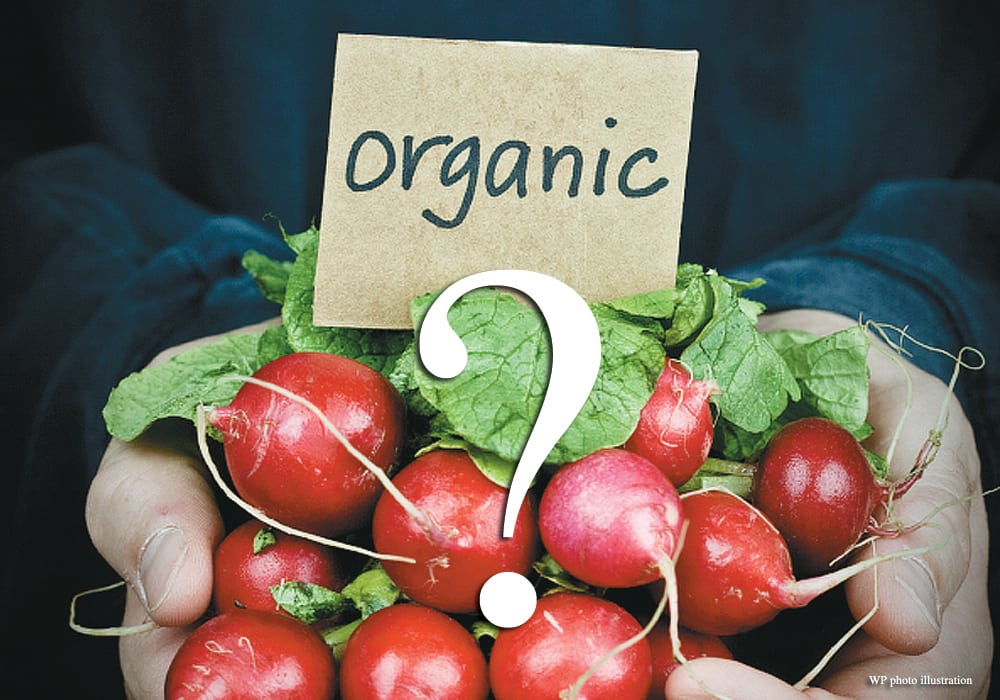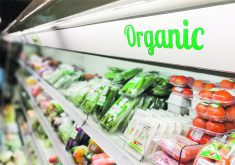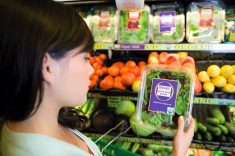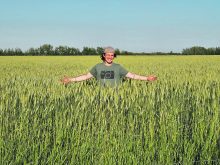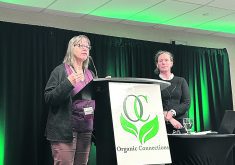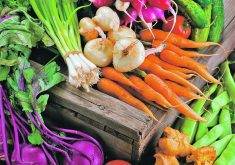The United States imported about 300,000 tonnes of organic corn from Turkey last year.
The figure is surprising because farmers in Turkey grow a tiny amount of organic corn.
“There’s only, reportedly, 2,000 hectares (5,000 acres) of organic corn grown in Turkey,” said Eric Jackson, chief executive officer of Pipeline Foods, a Minneapolis company that specializes in supply chains for organic and non-genetically modified grain and oilseeds.
The import statistics from Turkey are representative of a broader concern in North America’s organic food industry: there’s a shortage of organic feedgrains and oilseeds, particularly in the U.S., and imports help fill the void.
Read Also

Farming Smarter receives financial boost from Alberta government for potato research
Farming Smarter near Lethbridge got a boost to its research equipment, thanks to the Alberta government’s increase in funding for research associations.
However, a percentage of those imports may be fraudulent.
“The situation is kind of the biggest non-secret in the business,” Jackson said from his Minneapolis office.
“Because of the price premiums in the organic space … you’re going to have people who try to profiteer. So we’ve attracted some … bad actors.”
How much organic grain is imported?
- In 2016, the United States imported $160 million in organic corn.
- Organic soybean imports were $250 million.
- Comparable data doesn’t exist in Canada because the federal government doesn’t separate organic grain imports from conventional grain.
Source: U.S. Department of Agriculture
The premiums for organic grain and oilseeds can be two to three times the value of conventional grains. Organic corn, for instance, was selling for about C$12.50 per bushel in April. Meanwhile, corn futures in Chicago have been trading around US$4 (C$5.10) per bu. this spring.
With such a large price gap, buying conventional corn or soybeans overseas and selling it in North America as organic can be extremely lucrative.
The practice became very public last spring when the Washington Post wrote a piece about three fraudulent shipments of organic feed. One of the shipments was 36 million pounds of soybeans that originated in Ukraine and were shipped through Turkey en route to Stockton, California.
The beans started the journey as conventional feed but miraculously earned an “organic” label during the trip, increasing the value of the shipment by $4 million.
In response to that incident, the Organic Trade Association (OTA) in the U.S. launched a Global Organic Supply Chain Integrity Task Force to address the issue.
“Its mandate is to develop a best practices guide to use in managing and verifying global organic supply chain integrity to help brands and traders manage and mitigate the risk and occurrence of organic fraud,” the OTA says on its website.
Organic fraud may also be a problem in Canada.
Organic feedgrains have received most of the attention in the last year, but other organic foods are not perfect.
“Whenever there is that differential (in price between organic and conventional) there is that potential for fraud,” said Byron Hamm, certification manager with Pro-Cert Organic in Saskatoon.
Pipeline Foods is participating in the integrity task force, which has identified several weak links in the organic system.
One is Turkey.
Jackson said there is a pattern where traders will buy corn from countries in the Black Sea region, such as Ukraine, Moldova and Kazakhstan.
“These guys will go and find clean corn, pesticide free, but not necessarily grown organically,” he said.
“(Then) make a stop in Turkey. They will sometimes grind the corn in Turkey, put it back on the boat.”
Then, allegedly, the corn receives an organic certificate in Turkey, which means the paper trail of organic documents ends in Turkey.
“Until recently, what everybody has relied upon is the ability for somebody to hand (them) a piece of paper that says the product is organic,” Jackson said.
“That’s not sufficient. That piece of paper is relatively easy to forge…. What we need to ask for is a deeper set of documents that will reveal country of origin.”
As well, the organic food sector may need a global inventory of production. Jackson said they hope to create a database of acres to keep track of production of wheat, corn, soybeans and other crops in every country.
If exports from a certain nation are excessive or implausible, it should set off alarm bells in the industry.
In some cases, the database should be extremely simple.
“Kazakhstan has no organic corn,” Jackson said.
The organic industry is also hoping to set up a tracking system that flags shipments from suspect countries. It may be implemented this month.
“There are ship tracking services that are going to be put into play here, in the next 10 days,” Jackson said May 11.
Many players in the organic sector are in favour of increased vigilance when it comes to organic imports. Others say the problem is exaggerated, and most of the imported grain is legitimate.
Two industry representatives told The Western Producer that the crackdown on imports is partly about protectionism. Farmers and companies in the organic sector view the imports as a threat to high prices and fat profits.
Jackson doesn’t buy that argument because the U.S. organic sector is short on organic feed.
The industry desperately needs imports, but they must be credible.
“We have recognized that the initial rules governing the trade of organic grains and oilseeds did not sufficiently contemplate the opportunity for fraud, so the rules need to be tightened and the enforcement of those rules expanded.”




